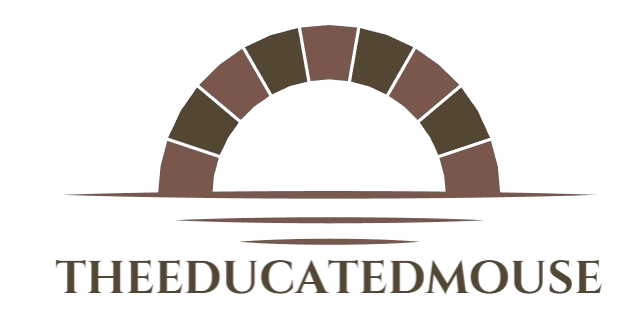When we think about effective learning, our minds often zero in on the moment of intake: the hours spent rereading passages, highlighting textbooks, and underlining lecture slides. This is what cognitive scientists call the “encoding” phase—getting information into the brain. But what if the key to mastering a subject doesn’t lie in how we pour knowledge in, but rather in how we pull it out? Enter retrieval practice, a deceptively simple but extraordinarily powerful approach that can transform passive review into active learning.
Beyond Rereading: Shifting the Focus to Recall
Imagine two students preparing for an exam. Student A methodically rereads each chapter, underlines important sentences, and copies notes verbatim. Student B, after an initial read, shuts the book and writes down everything she can remember—definitions, formulas, key names—then checks her list against the text. Later, B repeats this recall exercise, honing in on the gaps in her memory. Although both spend the same amount of time studying, Student B consistently outperforms A on quizzes and exams. Why? Because retrieval practice—the act of actively recalling information—solidifies learning more deeply than passive review.
Research dating back more than a century has shown that when learners struggle to bring knowledge to mind, they forge more durable memory traces. That “struggle” is not a sign of failure; it’s a feature of effective learning—what psychologists call a “desirable difficulty.” In short, by practicing recall, students train their brains the same way they would train muscles at the gym: through resistance and repetition.
What Retrieval Practice Is—and What It Isn’t
It’s important to clarify that retrieval practice is not simply another form of assessment. It’s a learning strategy designed to help students internalize and organize information, not a grading tool. Here are a few quick, low-prep ways to weave retrieval practice into any classroom or self-study routine:
- Cold-Start Recall
Rather than opening a review session with a summary of last week’s content, ask learners to write down everything they remember. This “brain dump” not only primes their minds for new material but also reveals which ideas need further review. - Two-Take Wrap-Ups
At the end of a lesson, invite each student to jot down just two things they learned. This focused recall cements the day’s highlights and gives both teacher and student clear feedback on comprehension. - Flashcard Routines
When using flashcards, resist the urge to flip them prematurely. Instead, write—or say—your answer out loud, then check. This extra mental step strengthens retrieval pathways. - Practice Quizzes
Short, ungraded quizzes can be invaluable. Picking a handful of questions from past lessons and answering them without notes prompts the brain to dig deeper, ensuring that knowledge isn’t just “familiar,” but truly accessible.
Who Benefits—and How Long the Effects Last
One of the most compelling aspects of retrieval practice is its versatility. Studies have documented its benefits across:
- Age groups: from preschoolers to older adults
- Educational levels: K–12 students, undergraduates, and even medical trainees
- Subject areas: everything from history and literature to surgical CPR skills
- Timescales: gains persist across days, weeks, and even months
A broad literature review found that learners who regularly engage in retrieval practice can boost their performance from average (C-range) to top-tier (A-range) grades. The reason lies not only in better memory but in enhanced metacognition—students become more aware of what they know and what they still need to learn, allowing them to allocate their study time more efficiently.
The Science Behind the Strategy
Why does recalling information solidify it more than rereading? Two interrelated factors play a role:
- Use It or Lose It
Neural pathways weaken when unused; retrieval acts like maintenance, keeping those connections strong. Each successful act of recall reinforces the network that stores the memory. - Desirable Difficulty
Effortful retrieval is challenging, but that very effort makes the learning stick. Struggling to remember is not a sign that you’re failing—it’s evidence that your brain is working to build robust memory traces.
Making Retrieval Practice Your Habit
To unlock the full potential of retrieval-based learning, consider these tips:
- Integrate Early and Often: Don’t wait until exam season. Begin each study session with a quick recall activity to activate prior knowledge.
- Vary the Format: Mix written brain dumps with flashcards, group quizzes, and teaching peers. Variation keeps your brain agile and engaged.
- Track Your Progress: Keep a log of which topics you struggle to recall. Revisiting these “hard zones” at spaced intervals will bolster your retention.
- Embrace the Struggle: If recalling certain facts feels tough, lean into the difficulty. That mental workout is exactly what leads to stronger, longer-lasting learning.
Conclusion
Retrieval practice reframes the act of studying from a passive intake of information to an active quest for recall. By consciously pulling knowledge out of our minds—through flashcards, cold-start essays, or impromptu quizzes—we not only solidify existing memories but also sharpen our awareness of what we’ve truly mastered. This approach doesn’t require fancy tools or extra grading; it simply asks learners to shift from “How much can I read?” to “How much can I remember?” And in that shift lies the difference between temporary familiarity and lasting understanding. So the next time you hit the books, close the cover and ask yourself: what can I recall today?





